Keyword Targeting Strategies to Generate Thousands of Real Estate Leads
Real Estate Keyword Research and SEO
VIP Realty is the fastest-growing independent brokerage in California and the largest in Texas. Thousands of search terms from these states find VIP Realty at the top of Google.
Successful agents use various strategies to identify and target keywords. This includes understanding the buyer's search intent, concentrating on location keywords, and analyzing keywords the competition ranks for.
If you want to outrank other real estate brokers in your area, this article is for you. We'll discuss VIP Realty's tried-and-true approach to identifying the keywords that will increase your online visibility.
Whether managing a team or working solo, you can dominate Google searches and attract more seller and buyer clients using these strategies.
Let’s get started.
Master Keywords & Lead the Pack
When shopping around for a house, most buyers start their search online. Keeping this in mind, you may optimize your website and videos to attract more potential customers by using relevant keyword research.
Carrying out accurate keyword research is important. Analytical tools such as Ahrefs and SEMrush can assist you in determining the keywords and search volume your competitors rank for. Consider the people you want to reach out to and the search terms they might use.
Concentrate on more detailed keywords rather than broad terms. For better results, you may opt for specific keywords such as "real estate agent in Dallas for first-time buyers" rather than general terms.
Once you have a list, include keywords all over your website content, blog posts, and social media posts. Do not place keywords where they don't fit. Now let's look at what your competitors are doing online to strengthen your approach.
Steal Winning Strategies from Your Competitors
Rather than copying, improve your approach by adapting useful tactics discovered through spying on the competition.
Keyword research tools support this by displaying the most popular websites, trust-building links from other websites, and user-friendly page designs for each competitor. This information reveals what phrases and styles interest target customers when browsing listings.
For instance, you notice a website explaining complex home financing simply with an intriguing visual guide. Inspired, you replicate the concept, covering common real estate keywords in an easy-to-understand format.
Another way to find new keywords to target is to concentrate on neighborhoods or property types other sites haven't looked at.
Improve your online marketing while maintaining the effectiveness and novelty of your strategies by analyzing and modifying those of your competitors.
In terms of efficacy, exploring the customer acquisition strategies used by successful brokerages may yield additional valuable insights.
Location, Location, Leads
Location plays a key role in real estate both online and offline. Whenever someone searches for homes across the state, general terms like "California homes" may receive a lot of queries each month. But more targeted search terms such as "Santa Monica condos" offer better results.
Localized search terms provide a better chance for clicks and calls compared to broader city or state searches. Attract potential buyers with location-specific keywords, including neighborhood and city names.
Add landmarks, parks, and tourist destinations to your website, advertisements, and videos. This makes it easier for people looking for a place to live to find listings in those areas.
With location in mind, checking search terms without spending money presents the next important step.
Uncover Profitable Keywords without Spending
Want to rank higher in local search results but don't have a budget for paid keyword research tools? Find relevant keywords free with Google.
One method involves typing your location and listing types. Google's dropdown shows how often terms are searched—take note of popular searches.
Google pages have "Related Searches" areas listing related queries. Closely look at these for new keyword ideas.
Examine the highest-ranked pages for current keywords. Common words and phrases in titles and descriptions of top pages may mean potential keywords with little competition.
For instance, searching "San Diego real estate" showed "new homes in San Diego under $400k"—possibly a good keyword only on a few other sites.
Increase your reach by taking advantage of Google to find profitable long-tail keywords. Remember to take notes, practice often, and observe what the competition is doing.
To build a presence that stands the test of time, concentrate your efforts on evergreen keyword opportunities.
Build a Timeless Brand
Chasing short-lived marketing trends may attract brief attention but won't support ongoing success. Instead, target keywords people often search for.
Ever-green keywords revolve around ongoing topics such as neighborhoods (new and old), price ranges, or home features. Not seasonal or current event trends.
Targeting ever-green keywords offers long-term benefits:
- Valuable content remains useful to readers for years, not weeks. This boosts your reputation over time.
- Your rankings stay higher since searches happen regularly.
- New potential customers continue finding your business as the core topics retain interest.
Lay the groundwork for long-term success by concentrating your marketing efforts on ever-green keywords. Long-tail keywords are another option to target specific niche markets.
Reach Niche Audiences with Long-Tail Keywords
Recent data from Google searches shows over half of all property searches now use specific keywords instead of broad terms. Targeting specific keywords allows you to emphasize your message instead of casting a wide net.
Taking a targeted approach, let’s take Austin for example which grew the fastest according to recent data. Keywords about luxury apartments close to downtown with views of the skyline attract buyers looking for the Austin lifestyle.
Another group is beach enthusiasts in competitive coastal areas in SoCal. Reach them with keywords like "Walkable beach-front mansion in Mission Beach." Homes within a mile of the beach usually sell for over 25% more there!
Another opportunity is for professional athletes. Search for condos near the stadium quadrupled when the Dallas Cowboys did well to reach the playoffs of the 2022-2023 NFL season. Target phrases about homes with views of the stadium.
By researching keywords, you can design ideal listings tailored to each customer's interests. Targeted keywords result in a perfect fit for niche audiences. Shifting from individual niches, broader neighborhood amenities also appeal to buyers.
Leverage Local Amenities and Services
A recent homeowner survey found lifestyle features are just as important as location for over 40% of buyers. Be sure to mention the neighborhood perks in your listings.
School quality is the top priority for growing families. For example, target keywords on popular neighborhoods such as Farmers Branch, Valley Ranch, and Brookhaven in Dallas. This is because the highly rated Carrollton-Farmers Branch ISD serves these neighborhoods.
Younger buyers value low-maintenance living. For instance, highlight the easy access to popular spots including restaurants, shops, and parks along Knox Street in the Oak Lawn neighborhood.
Phrases such as "Condos near walking trails and green spaces for a carefree lifestyle" attract 20-30-year-old young professionals looking to live downtown without all the hassles of homeownership.
Even older folks want options. Profile listings in historic downtown areas, emphasizing the walkability of amenities. Phrases such as "Charming cottage steps from shops, parks and dining" highlight how nearby amenities make aging-in-place accessible. Besides, buildings, great schools, amenities, and activities gives an area more character.
Go Beyond Local: Expand Your Property Search with Optimized Keywords
Scale new heights with your real estate marketing by considering search terms and strategically building your online presence.
VIP Realty's tested methods show how concentrating efforts on location, niche groups, and ever-green topics leads to positive results.
Borrow a page from our playbook:
- Use tools such as Ahrefs and SEMrush to research popular neighborhood, city, and property search terms.
- Target terms or phrases competitors have overlooked and niche interests.
- Choose durable keywords that will be easy to find and reliable over time.
- Leverage nearby amenities and services buyers find important like schools.
- Use long-tail keywords to capture a niche market
By concentrating on these strategies, qualified buyers and sellers are continually attracted through organic searches.
Are you a real estate professional looking to increase leads and close sales? As a top independent brokerage, VIP Realty has the expertise and resources to take your real estate career further. Take the next step and schedule an appointment to discuss the career path ahead.
Frequently Asked Questions
1. How can I effectively research specific buyer groups and their interests to find niche keyword topics?
Extensive local research and online profiles are beneficial. Identify key niche audiences in your area like young professionals or retirees. Talk to locals to understand lifestyle needs. Explore niche forums and Facebook groups identifying what matters most—walkability, nightlife etc. Pay attention to search terms and hashtags used. Tools like SEMrush can surface long-tail keywords showing interest.
2. What free or low-cost keyword research tools can analyze search volumes and competitor strategies on a budget?
Good free options are Google Keyword Planner, SEMrush free version, Ubersuggest and AnswerThePublic. Google Trends shows search volumes. Basic keyword research on Google provides competition insights from top pages. As skills develop, regularly utilize these resources to find leads at a fraction of the cost.
3. What neighborhood amenities and local services should I highlight for different buyer demographics?
Families prioritize schools. Retirees want walkable access to transportation and services. Young professionals seek vibrant locations near restaurants, gyms and entertainment. First-time buyers stress affordable quality of life factors. Customize your message to match audience life stages.
4. How closely should keyword strategies and content target hyper-local versus city-wide searches?
Focus top efforts on highly localized keywords indicating interested buyers. But also target city-level searches to reach those researching an area. Allocate 60% of efforts to neighborhoods/ZIP codes, 30% to the city, and 10% to largest regional keywords.
5. Besides search terms, what other online assets expand reach with targeted keywords?
Consistent, topic-focused social media and video posts integrate search terms seamlessly. Blog content optimized for search performs well by providing value. Use identical keywords across all methods for greater visibility. Keep an eye on popular channels.
You might also like
Real Estate Agent Marketing & Training : Free Courses & Tips
Book a Service Today
We will get back to you as soon as possible
Please try again later
Start and Grow
Your Real Estate Career With Us.
Location
Offices throughout Texas
Email
Info@viprealestate.com
Call
877-352-8657
VIP Real Estate Careers & Jobs -100% Commission Brokerage




